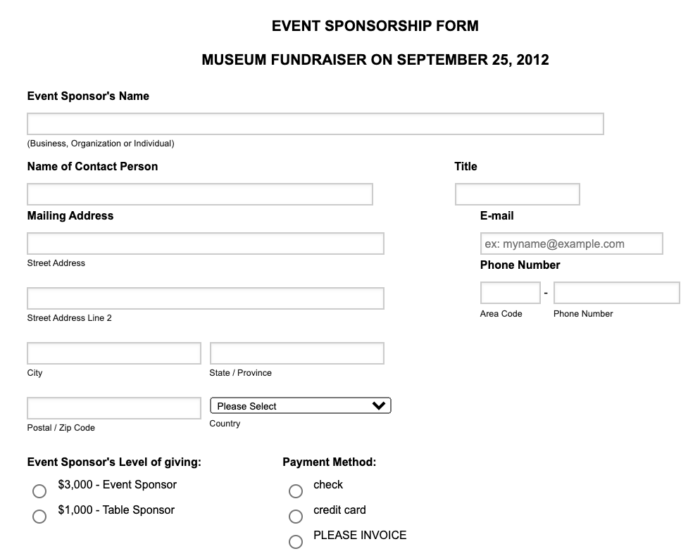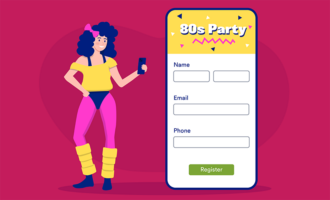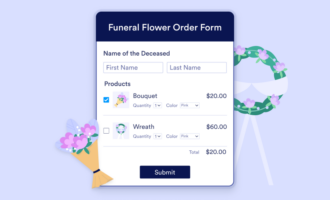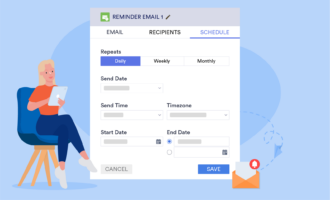You’re planning something big. Something really big. You just need a hand to make it happen. Or several.
That’s where sponsors come in. Whether your vision is grander than your budget, you’re new on the scene and want to come out swinging, or you need to spread the word farther than you can reach, landing the right support can help you build your dream event. Once you’ve secured a few of these mutually beneficial relationships, chances are you can continue to join forces to keep your event game strong.
- Be selective
- Be timely
- Be personal
- Be specific
- Be valuable
1. Be selective
Developing proposals for prospective sponsors is time-consuming, so it’s best to pitch smart, not hard. It simply makes sense to approach sponsors who have audiences similar to yours (and if you’ve collaborated on an event before, all the better).
Alignment in brand personality, communication goals, customer base, or mission makes for a natural pairing that will increase the chances your sponsor-to-be will recognize the value of backing your event. Extra points if the partner you have your eye on has sponsored anyone before, because they’ll already know why it’s worth it.
It’s also useful to understand what kind of support would be most helpful for your event and aim your requests accordingly. If you’re planning a high-profile event featuring celebrity speakers, media sponsorship can make coverage automatic. If you need to get more guests interested, influencers or established companies with active audiences could skyrocket your cred and crew.
If your budget needs a boost, deep-pocketed sponsors can make meaningful extras possible. On the other hand, if you need help with food, space, or travel, local hotels, restaurants, or couriers could solve those problems for you. Think about what would make the road ahead easiest, and focus your energy in that direction.
2. Be timely
Once you know who you’re going after, it’s important to plan your proposal thoughtfully.
Sponsors sometimes accept requests only during certain months, so start by researching the rules for the partners you’d be most excited to land. Usually, spring and early autumn are a safe bet; avoid busy holiday months.
Be sure to give yourself enough runway to identify and connect with the key decision maker, develop your pitch, and allow for delays in their response. Securing a sponsor can’t be an afterthought.
It’s also a good idea to keep an eye on the news and target the timing of your approach accordingly. If you get word of an impending new product launch, a recent change in leadership, or a compelling current event, show your prospect that you know what’s going on by offering to make the most of the moment for them. If you can integrate their product, speaker, or theme into the event, you’ll make it harder for them to turn down the opportunity to help make the event happen.
3. Be personal
As you develop your pitch, be sure to share your company story, announce your mission, and clarify your audiences. The more your sponsorship prospects are able to identify with you, both emotionally and strategically, the more likely they are to find the partnership appealing.
4. Be specific
Show you’re prepared, organized, and reliable by being clear about what you’re seeking. Break down your request for goods, services, or financing into precise and actionable terms. Whether your outstanding costs are for venue rental, catering, flying in presenters, app development, etc., sponsors will want to know where every cent or minute of their contribution will go. Honesty earns trust, every time.
5. Be valuable
Ultimately, organizations sponsor out of self interest, not charity. If your event offers a significant marketing opportunity, you have something sweet to trade for what you’re getting.
Identifying these incentives can go a long way toward attracting sponsors, whether that means providing free registrations or a free booth, enabling cross promotions, or advertising your sponsors before and during the event.
Your offers will be most convincing if you can tout numbers from past events, highlight anticipated attendance demographics, and promise social media engagement. Presenting a history of success positions your event as an advantage, not a liability.
If your event is new, your sponsor’s reward will seem higher if their risk is lower. Create a tiered structure of sponsorship opportunities that list options to contribute and corresponding benefits at a variety of levels, or offer to customize a package that will best serve the sponsor.
Sponsors can bring in bigger, better crowds, muscle up a skeletal budget, and add shine to your event and your organization. Ask carefully, and you’ll receive.




























































Send Comment:
1 Comments:
More than a year ago
How can I get in contact for your services